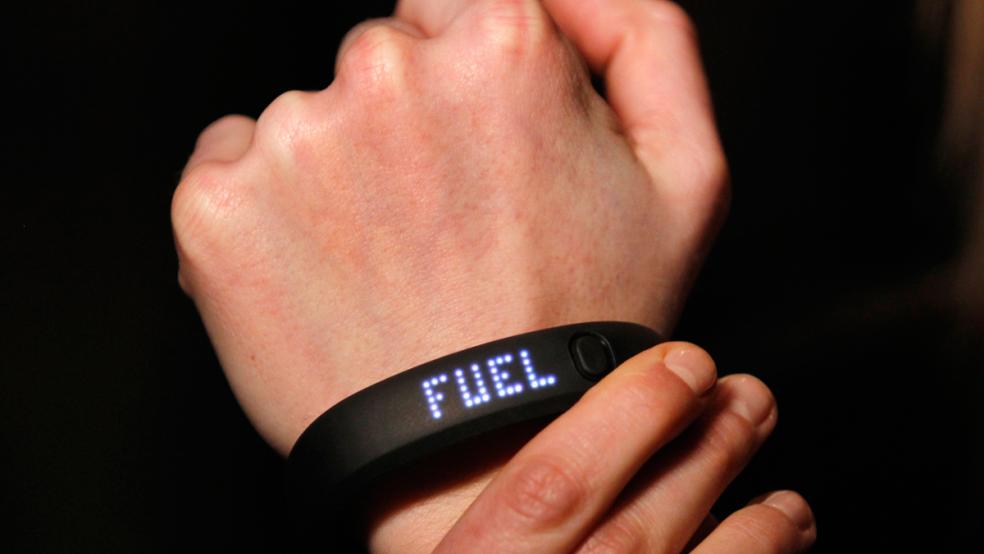It feels like wearable fitness technology just got here, but one company expected to be a dominant player in this mash-up field of high-tech and style has already decided to desert the fashion runway.
Tech news website CNET reported earlier this week that Nike has laid off most of of its "FuelBand" team. FuelBand is the athletic-apparel giant's bracelet-style device that tracks a wearer's workout data, like steps taken and calories burned. While Nike claims it will continue to sell its latest version of FuelBand, the SE — which it said remains "an important part" of Nike's business — a sleeker version set for a fall release has been canceled.
With this move, the company appears to be out of the hardware end of the fitness tracker market.
Related: Are Smartwatches Must-Have Wearables or Niche Product?
Nike's Digital Sports team totals 200 employees; 70 of those worked on FuelBand, and about 55 were reportedly let go. So what are the remaining 150 or so Digital Sports employees going to be doing with their time? Developing software, it seems — fitness-tracking apps that will run on the fitness-tracking hardware other companies make.
Companies like Apple. Apple is currently working on something called the iWatch which, if rumor has it right, might have health and fitness tracking abilities far beyond what FuelBand can do. Apple CEO Tim Cook sits on Nike's board, as well. Perhaps Nike also made this decision, then, to head off the almost inevitable trouble that would arise once Apple's iWatch, which would compete directly with FuelBand, hits the market.
Nike already has a fitness ecosystem in place with Apple called "Nike + iPod." And since Apple's forte is hardware — sleek, elegant devices that let users interface intuitively — and Nike knows the fitness market, letting each company focus on its expertise might be the best path forward.
It's Not Easy Going Tech
One would think that if FuelBand was selling like gangbusters for Nike, or if the company saw tremendous revenue and profit potential in the hardware end of the fitness-tracker market, it wouldn't have laid off the majority of its FuelBand team.
Tech isn't an especially easy field to break into, even for the pros. Google runs a significant portion of our digital lives, yet is hitting rough spots in the development of its latest and greatest hardware effort — Google Glass, the company's cutting edge and highly controversial smart glasses. People are turning out to be very wary of the notion that the guy sitting in the corner of their local coffee shop might be snapping photos or shooting video of them.
Related: 8 High-Tech Devices You Could Soon Be Wearing
And a new report from The Pew Research Center helps explain why. While the American public looks favorably on high tech and cutting-edge science as long-term, abstract concepts, when it comes to the short-term and the concrete — like personal drones flying about, lab-grown meat, or devices that constantly stream the user information (like fitness-tracking devices, for instance) — the American public holds a much less favorable opinion.
"As a fast-paced, global business we continually align resources with business priorities," Nike said in an email to CNET about the FuelBand layoffs. "As our Digital Sport priorities evolve, we expect to make changes within the team."
And as the digital-sports industry continues to evolve, expect even more companies to reevaluate their priorities and perhaps also drop out of the fitness-tracking business. It's not surprising that one company already has. What's surprising is that one company is Nike.
Top Reads from The Fiscal Times:
- HBO and Amazon Team Up to Challenge Netflix
- Americans Are Still Idiots When It Comes to Investing
- How Medicare Data Could Revolutionize Health Care





